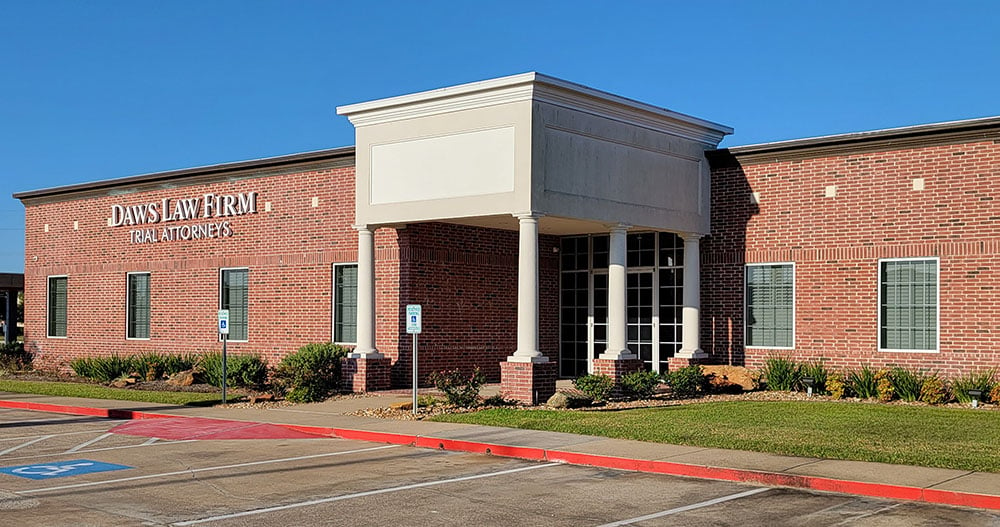A Law Firm Built On Results
We Take Care Of Southeast Texas
Successfully resolving a case is a product of the preparation a lawyer puts into it. The Daws Law Firm, PLLC‘s track record of successful results is a testament to the hard work and preparation our attorneys put into their cases. Based in Beaumont, Texas, we are local, experienced attorneys helping local people with personal injury and family law cases. Call us today for a free case evaluation to see how we can best help you.
Case Results
$10.2 Million
Jury Verdict
Birth Injury case against a Obstetrician and Hospital that negligently caused a traumatic brain injury to an infant during labor and delivery.
$4.9 Million
Settlement
Worker sustained a traumatic brain injury from a pressurized gate hitting him in the head and throwing him into a pit below.
$4.5 Million
Jury Verdict
Medical Malpractice case against Hospital and Cardiologist for negligent cardiac care leading to heart attack and death.
$4 Million
Jury Verdict
Medical malpractice case where local OBGYN and hospital nurses negligently monitored the birth process resulting in brain damage to the baby.
$10.2 Million
Jury Verdict
Birth Injury case against a Obstetrician and Hospital that negligently caused a traumatic brain injury to an infant during labor and delivery.
Settlement
Worker sustained a traumatic brain injury from a pressurized gate hitting him in the head and throwing him into a pit below.
$4.5 Million
Jury Verdict
Medical Malpractice case against Hospital and Cardiologist for negligent cardiac care leading to heart attack and death.
$4 Million
Jury Verdict
Medical malpractice case where local OBGYN and hospital nurses negligently monitored the birth process resulting in brain damage to the baby.
Practice Areas
18-Wheeler Wrecks
Medical Malpractice

The Daws Difference
Not all law firms are created equal. Some law firms spend large amounts of money marketing just to capture your case and pass it off to another firm. Some law firms claim to be trial attorneys but have not tried a case in years. At The Daws Law Firm, PLLC, we are who we claim to be. We are experienced trial attorneys who care about the people we represent just as much as the results we obtain. To see why The Daws Law Firm has been right for so many people, read our client reviews. With Daws, the difference is:
A better approach
Hard work and preparation
Local, client-first relationships (not case handling)
Easy attorney access
Approachability
Experience
Resources to succeed
Exceptional support
Proven trial techniques and strategies
Success in and out of trial

Legal representation in Beaumont, Texas

Malachi
Daws
Originally from the Beaumont area, Malachi Daws is familiar with the heritage of Southeast Texas. He is dedicated to providing the people of this…

Contact Us Today
Legal issues do not tend to get better on their own, especially when dealing with unsympathetic insurance companies, large corporations or a distressing family law matter. It is better to get legal help sooner than later to assess your options and help preserve evidence when necessary. If you would like a free case evaluation, call us today at 409-838-6000 or write to us online to get started.
Malachi was a great attorney. I would recommend his firm to anyone who is dealing with a personal injury like mine which required back surgery. I had a lot of medical bills and missed a lot of time off of work. He was very attentive and honest, and he helped me out with any question I had. His firm always kept me up to date on my case. Their staff was always very polite. Me and my family and very grateful for him helping us through his difficult time.
We Are Southeast Texas


